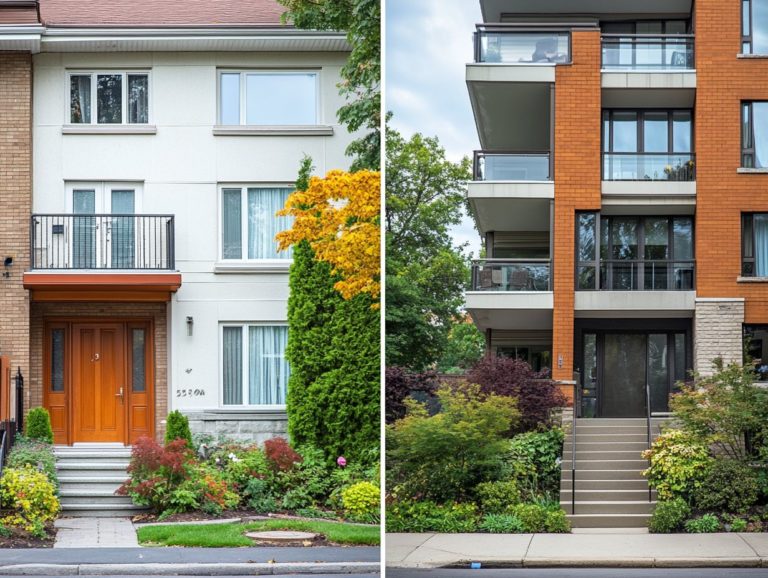What’s the Difference Between Fixed and Variable Mortgages?
Navigating the world of mortgages can feel daunting, especially with terms like “fixed” and “variable” floating around. Grasping these fundamentals is essential for making informed decisions about home financing.
This article will break down the key features of both fixed and variable mortgages, highlighting their advantages and disadvantages.
It will also explore crucial factors to consider when selecting the right mortgage for your unique financial situation. Whether you re a first-time buyer or contemplating a refinance, this guide will empower you to make the best choice!
Contents
Key Takeaways:
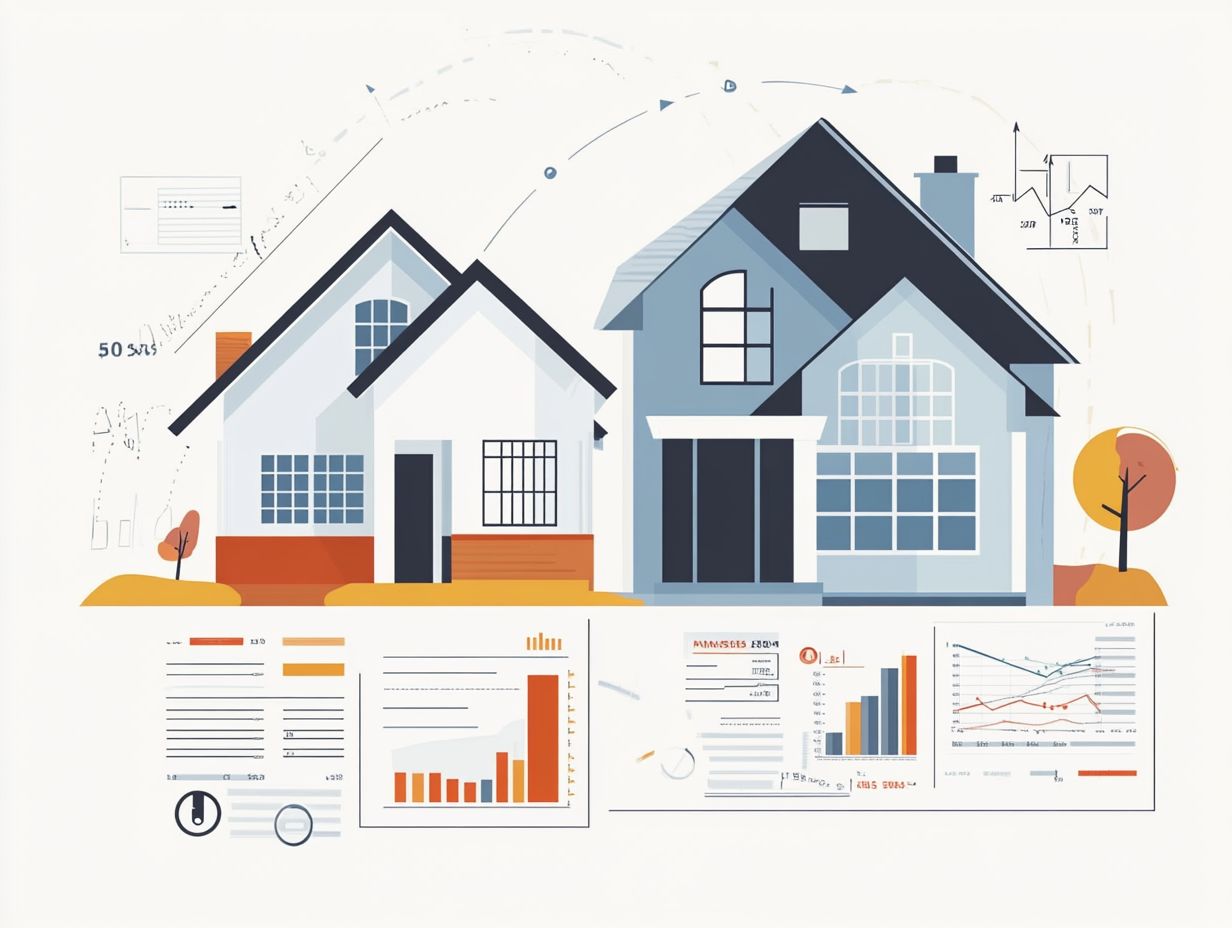
- Fixed mortgages offer stability and predictability with consistent monthly payments, making it easier to budget and plan for expenses.
- Variable mortgages have the potential for savings and flexibility but come with the risks of fluctuating interest rates and uncertain payments.
- When choosing a mortgage, consider your personal financial situation and the current market conditions to determine which option best suits your needs and goals.
Understanding Mortgage Basics
Grasping the fundamentals of mortgages is crucial for anyone considering buying a home or refinancing an existing mortgage.
Mortgages are not one-size-fits-all; they come in various types, each offering distinct advantages and disadvantages that can greatly influence your financial landscape.
You ll primarily encounter two categories: fixed-rate mortgages and adjustable-rate mortgages (ARMs). ARMs are loans with interest rates that can change based on market conditions, affecting your monthly payments.
By understanding these essentials, you can make informed decisions about your mortgage options and adeptly navigate the complexities of mortgage contracts in today s housing market.
Definition of Fixed and Variable Mortgages
Fixed-rate mortgages provide you with a consistent interest rate and stable monthly payments throughout the term. In contrast, adjustable-rate mortgages (ARMs) come with interest rates that can fluctuate, potentially altering your monthly payments.
Fixed-rate mortgages are appealing if you want predictable budgeting and wish to avoid financial strain during uncertain economic times.
On the other hand, ARMs typically start with a lower initial interest rate, making them attractive if you plan to sell or refinance before the rate adjustments begin.
Interest rates for both types of loans are influenced by factors like economic indicators and lender policies. An ARM’s interest rate may rise after an initial fixed period, impacting your payment stability, while fixed rates remain unchanged, providing security against such fluctuations.
Understanding your financial situation and future plans is vital in determining which mortgage type aligns best with your long-term goals.
Pros and Cons of Fixed Mortgages
Fixed-rate mortgages are well-regarded for their stability and predictability. They provide peace of mind through consistent payments over time.
This approach helps you navigate the unpredictable waters of interest rate fluctuations and economic conditions without worry.
Stability and Predictability of Payments
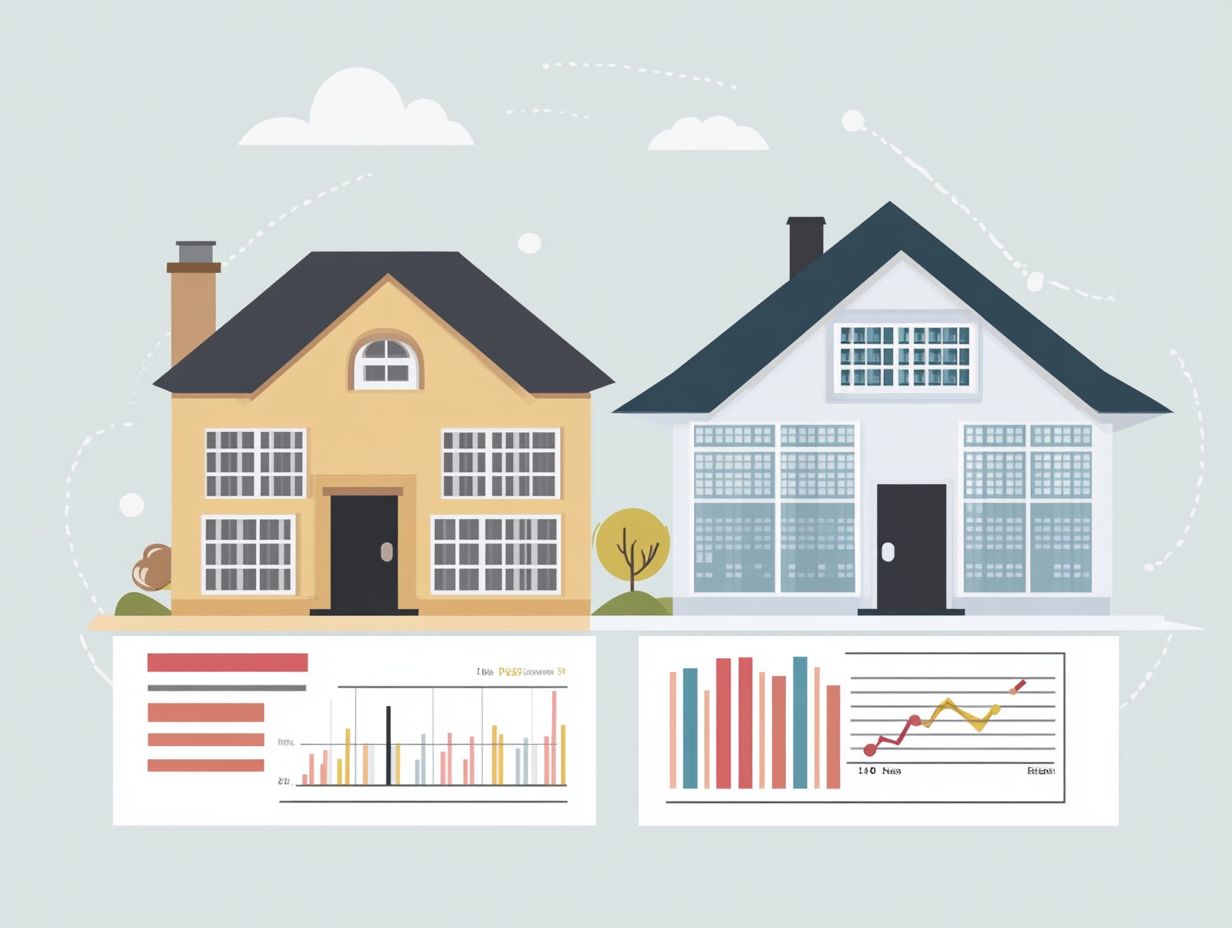
Fixed-rate mortgages provide stability and predictability, giving you peace of mind. You can plan your budget without worrying about fluctuations caused by changing interest rates.
This sense of security is especially crucial in today s unpredictable economic landscape, where inflation, shifts in government policies, and global market trends can impact interest rates.
For example, if inflation surges, central banks might raise rates to temper spending, making variable-rate loans potentially more expensive for borrowers.
By choosing a fixed-rate mortgage, you effectively shield yourself from unpredictable rate spikes. This allows you to allocate funds toward savings, investments, or essential expenses without the anxiety of rising mortgage costs.
Ultimately, knowing exactly what your monthly payments will be adds a valuable layer of stability to your overall financial planning.
Limitations and Drawbacks
While fixed-rate mortgages have advantages, they also come with limitations and drawbacks. For example, you might face higher initial interest rates compared to adjustable-rate mortgages (ARMs) and penalties for early repayment that could impact your overall affordability.
The rigidity of fixed-rate loans may not align with your changing financial situation. This inflexibility can pose challenges, especially if market rates drop and you consider refinancing.
Refinancing can include unexpected costs, like closing fees and origination charges, which may not be immediately clear. This financial burden may lead you to reconsider a fixed-rate option, nudging you toward alternatives that offer greater flexibility and potentially lower long-term expenses.
Pros and Cons of Variable Mortgages
Variable mortgages, particularly adjustable-rate mortgages (ARMs), offer a unique opportunity for savings and enhanced flexibility. By taking advantage of lower initial interest rates, you can enjoy reduced payments at the beginning.
On the flip side, it s crucial to be aware of possible risks, such as fluctuating payments and unpredictable long-term costs that could affect your financial planning. Balancing these factors matters for making an informed decision that aligns with your goals.
Potential for Savings and Flexibility
A standout benefit of adjustable-rate mortgages is the potential for savings, especially in the initial years when you can take advantage of a lower starting interest rate. This not only gives you greater flexibility in managing your finances but also sets the stage for significant reductions in your monthly payments.
With this lower rate, you can redirect those savings toward essential expenses or smart investments. In this early phase, you may find a welcome relief in your budget, allowing you to pay down debts, save for long-term goals, or enjoy a more comfortable lifestyle.
As interest rates adjust in the following years, this payment flexibility becomes a valuable asset, enabling you to reassess your financial commitments and refine your budgeting strategies. This ensures you’re ready for any shifts in your mortgage rate, allowing you to navigate your financial landscape confidently.
Risks and Uncertainty
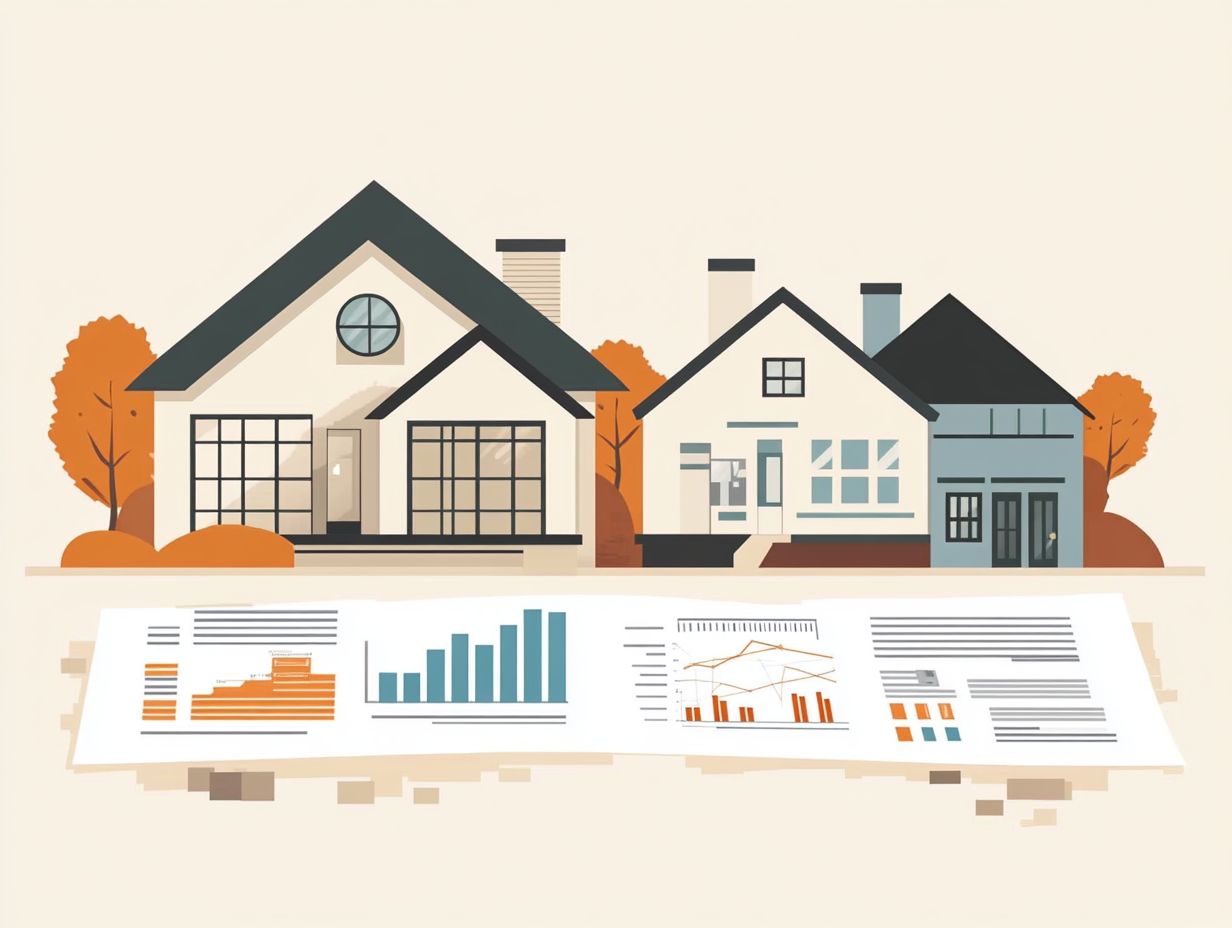
Adjustable-rate mortgages may seem enticing, but they carry their share of risks and uncertainties, especially as interest rates climb. This can lead to unexpected changes in your payments and an increase in mortgage debt.
Picture securing a five-year ARM with a low rate; once that period ends, your payments might shock you as adjustments take effect sometimes increasing by hundreds of dollars.
If you’re not prepared for this shift, you might find it hard to meet your financial commitments, which could lead to late payments or even foreclosure. Without careful financial planning, these sudden adjustments can strain your budget, affecting other aspects of your financial health.
Factors to Consider When Choosing a Mortgage
When selecting a mortgage, it s essential to weigh several factors, including your financial situation, current market conditions, and the implications of mortgage debt.
Each of these elements significantly shapes your long-term financial health and payment amounts. Being mindful of these aspects will help you make a well-informed decision that aligns with your financial goals.
Personal Financial Situation
Your personal financial situation is crucial. It influences mortgage affordability, borrowing limits, and your ability to make monthly payments.
A steady income reassures lenders about your repayment capabilities. It also broadens your available options. A strong savings cushion enhances your bargaining power, often leading to better terms or lower interest rates.
Conversely, existing debts can significantly affect the ratio of your debts to your income. This is a key metric lenders closely evaluate in their decision-making process. This is why meticulous budget planning becomes essential.
By grasping how these financial elements interconnect, you enable yourself to make informed decisions about the mortgage type that best aligns with your long-term financial goals.
Understanding Market Trends: Your Key to Smart Home Financing
Market conditions and predictions play a crucial role in shaping mortgage rates and housing prices. It s essential for you, as a prospective homeowner, to stay informed and consult with a financial advisor to navigate these ever-changing economic conditions.
Understanding the nuances of current market trends positions you to take advantage of favorable rates and secure the best financing options. Financial advisors interpret these market fluctuations, providing invaluable insights on when to lock in rates or explore refinancing opportunities.
A thorough grasp of economic indicators can help you anticipate shifts in the housing market. This enables you to make informed investment decisions. This strategic approach enhances your financial stability and instills confidence as you navigate the complexities of home buying.
Frequently Asked Questions
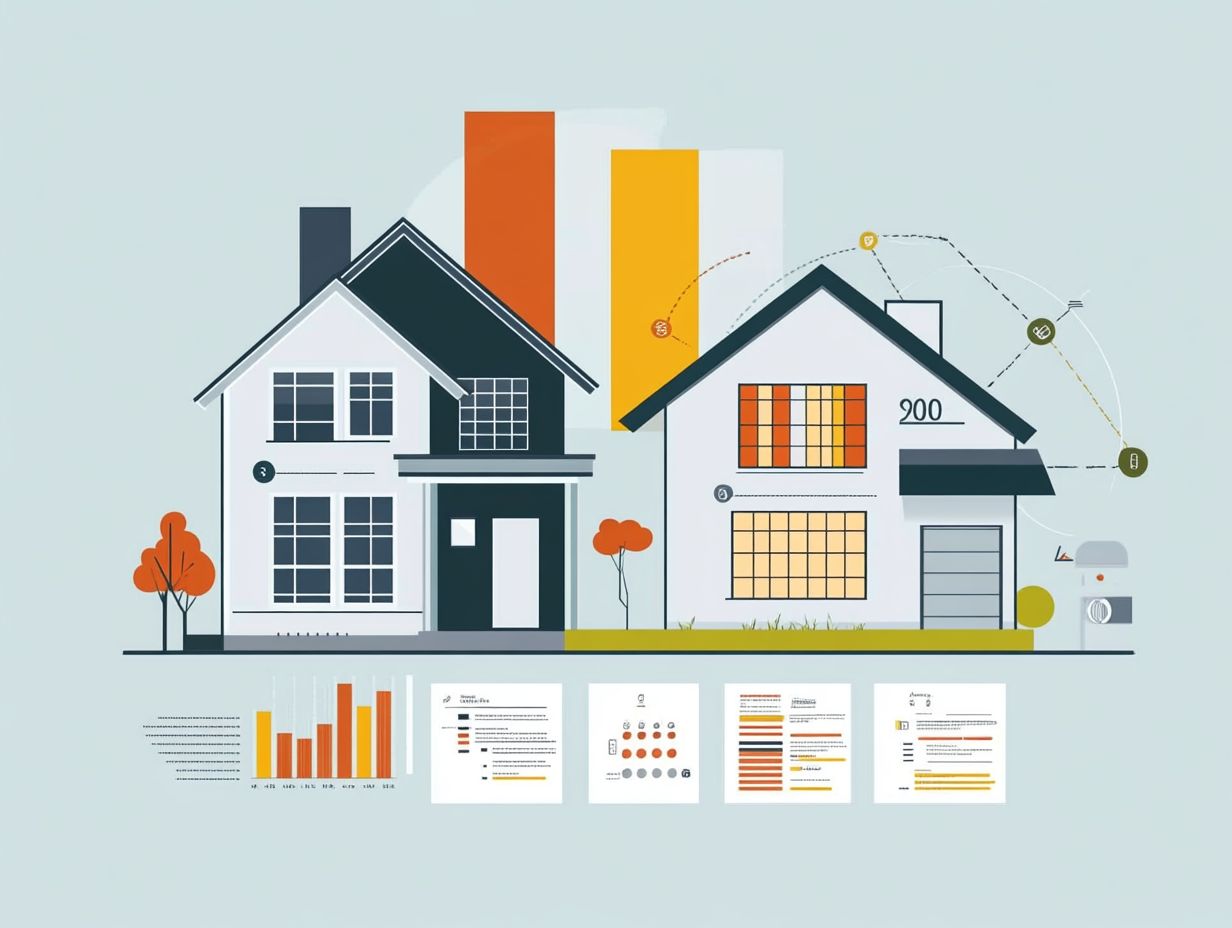
What s the Difference Between Fixed and Variable Mortgages?
Fixed and variable mortgages are both types of home loans, but they differ in how the interest rate is determined and whether the rate can change over time.
What is a Fixed Mortgage?
A fixed mortgage has a set interest rate that remains the same for the entire term of the loan. This means your monthly mortgage payment will also stay the same, providing stability and predictability in your budget.
What is a Variable Mortgage?
A variable mortgage has an interest rate that can fluctuate based on market conditions. This means your monthly mortgage payment can go up or down over the course of your loan term.
Which one is better: Fixed or Variable Mortgage?
There is no clear answer as it depends on your financial situation and risk tolerance. A fixed mortgage offers stability and protection against rising interest rates, while a variable mortgage may save you money if interest rates decrease.
Can I switch from a Fixed Mortgage to a Variable Mortgage?
Yes, you can switch from a fixed mortgage to a variable mortgage, but it may come with fees and penalties. Carefully consider the potential risks and benefits before making the switch.
Can I switch from a Variable Mortgage to a Fixed Mortgage?
Yes, switching from a variable mortgage to a fixed mortgage is possible, but it may also involve fees and penalties. Consider your reasons for switching and consult with a financial advisor to determine if it’s the best decision for your situation.
Take the next step in your home financing journey by reaching out to a financial advisor today.

